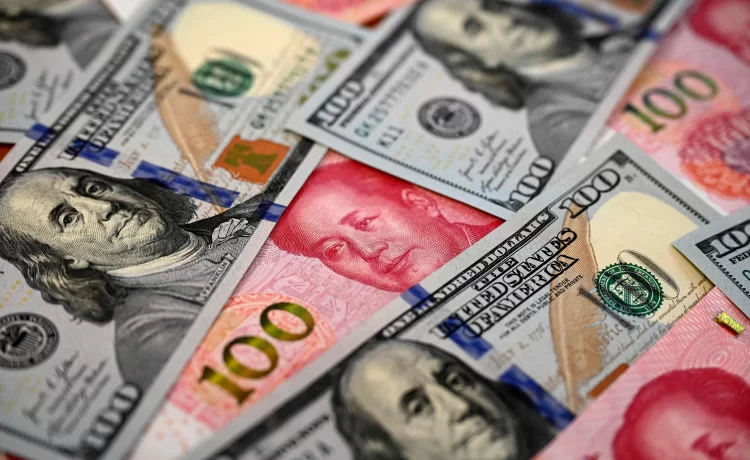CHINESE investors and trading companies boosted their use of the renminbi in international settlements to a record last month as the US dollar’s global allure dimmed and Sino-US trade tensions escalated.
Individuals and entities based in China used the renminbi in 54.3 per cent of their cross-border activities in March, for a total of US$724.9 billion, according to Bloomberg calculations based on data published by the State Administration of Foreign Exchange (SAFE) on Tuesday (Apr 22).
Rising adoption of the renminbi by the Chinese comes as the greenback’s preeminent role in global financial markets is increasingly undermined by the Trump administration’s aggressive and unpredictable tariff policy. The growing use is also a sign that Beijing’s long-term efforts to boost global adoption of the currency are making progress.
“Chinese firms have incentives to settle trade in the (renminbi) from a geopolitical perspective, and the usage will likely increase in the long run,” said Gary Ng, a senior economist at Natixis in Hong Kong. But the progress of renminbi internationalisation “may not be at the same pace if the transactions are only for China-related trade”, he added.
Chinese individuals and entities also used fewer US dollars in their overseas activities, the SAFE data showed. Their overseas settlements in the American currency accounted for 41.4 per cent of the total in March, down from more than 70 per cent in early 2018 during US President Donald Trump’s first term.
Trade tensions between China and the US have been building in recent months, as Trump rolled out higher global tariffs in early April and slapped duties of 145 per cent on the Asian nation’s exports. The president appeared to back down somewhat on Tuesday, flagging the possibility of cutting tariffs on China “substantially” if the two countries reach a deal.
BT in your inbox

Start and end each day with the latest news stories and analyses delivered straight to your inbox.
More convenient
The People’s Bank of China said this week it will make it more convenient for the market to use the renminbi, and it will hold a press conference on Wednesday to share plans to facilitate cross-border financial services in Shanghai.
The jump in renminbi use in March was also partly driven by mainland Chinese investors buying Hong Kong stocks that had become more attractively valued than their onshore peers.
Investors remained active in onshore- and offshore-listed Chinese equities, especially via the Stock Connect programme with Hong Kong, said Stephen Chiu, chief Asia foreign-exchange and rates strategist at Bloomberg Intelligence.
“This has bolstered the (renminbi’s) cross-border usage under the securities account, which has been one of the key drivers of helping the (renminbi to overtake) the dollar usage in China over the years,” he said.
Still, the Chinese currency has a long way to go to challenge the greenback’s global status, he added.
The latest SAFE data refers to “China’s own cross-border payment structure only, not for the rest of the world”, Chiu said. “The (renminbi) won’t be a main reserve currency any time soon because there are better choices in the yen and euro.” BLOOMBERG





